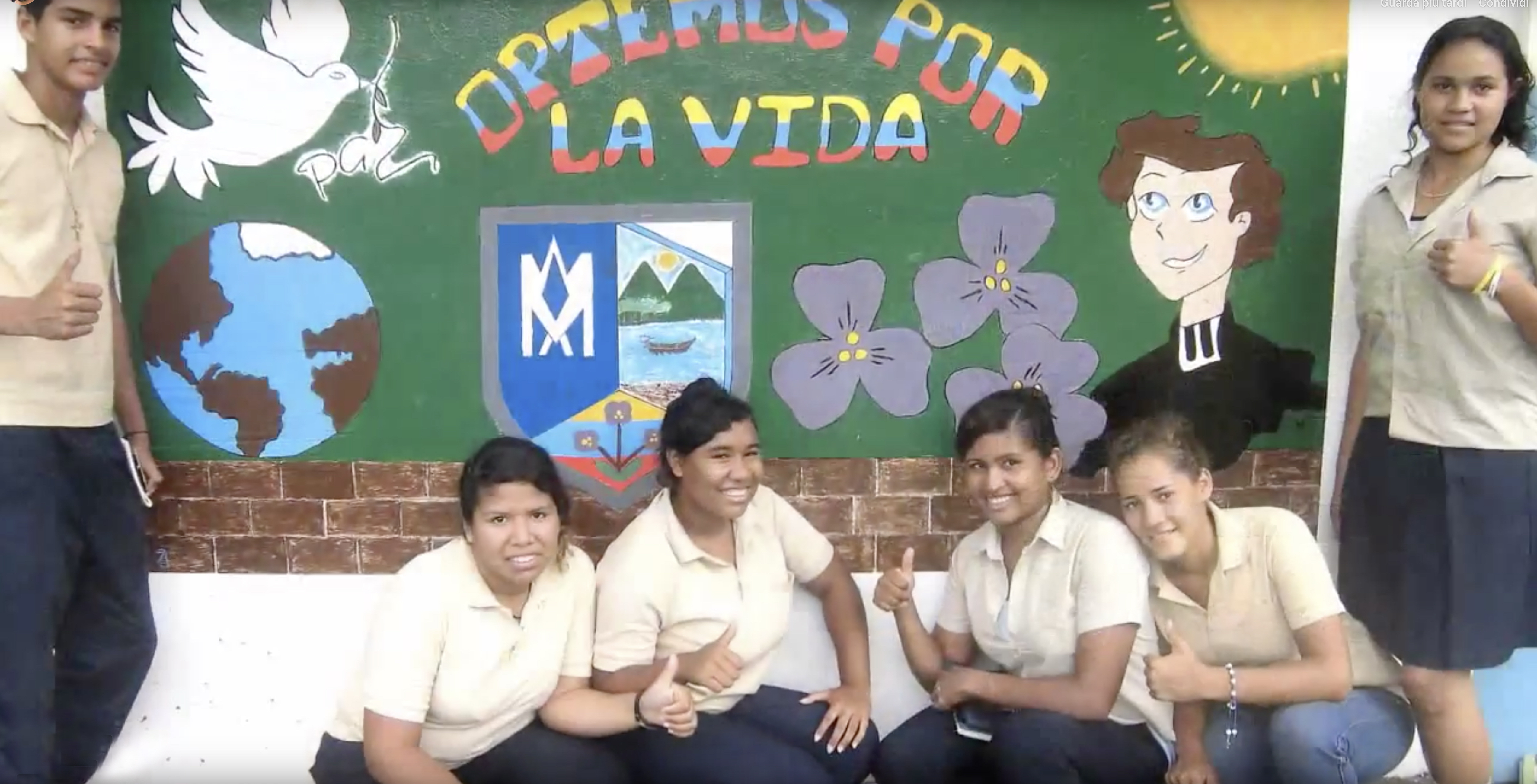
The Santa Catalina School
The Santa Catalina school bears the name of the village where it is located. The village of Santa Catalina is in the Orinoco Delta, in Caño Mánamo, accessible only by river, in canoes. Its population of 1,130 support themselves by fishing, and by working at livestock and government jobs.
Presently, four Marist Brothers, two Sisters of Parish Action and a group of lay teachers provide an integral education and promote evangelization in the area.
The school is owned by the Ministry of Education. In September 1989 it was given in trust to the Marist Brothers. They began to update the run-down installations—beds, doors, windows, desks. They purchased generators, pumps, water coolers, kitchen utensils and plates, etc.
The indigenous Waraos (women and men)live in separate boarding school. The Waraos are the native inhabitants of the delta. They did not have schools in most of their small communities, so going to the boarding school provided them with food and an integral education.
Since 2016, the Brothers have not been able to support the boarding school, so it was forced to close. However, the integral education of the boys and girls of the village has continued. Until 2008 it provided education at the primary level and the first three years of high school. The students who wanted to continue their high school had to go to nearby cities, which was an economic obstacle and kept them far from their parents. For this reason, in 2011 they were offered another year of high school and so completed their baccalaureate. The families appreciate the educational process that has been developed.

Goals for the future
Currently, new challenges have arisen. We hope to be able to re-open the boarding school as soon as possible, and to provide the indigenous people with food and economic aid from the Ministry of Education, to develop agrarian and livestock training, and to ensure that electricity as well as drinking water is provided.
Another field we hope to develop within the school's Integral Educational Project is training in integral ecology. It is also a priority to promote teacher training. Likewise, medical assistance is another important project that, together with the neighboring community, we need to achieve, since those who become ill must be transferred in canoes for three and a half hours or more to the nearest city. We are all responsible for helping the local people have a dignified life.
